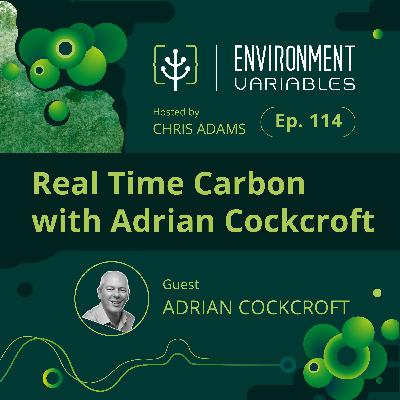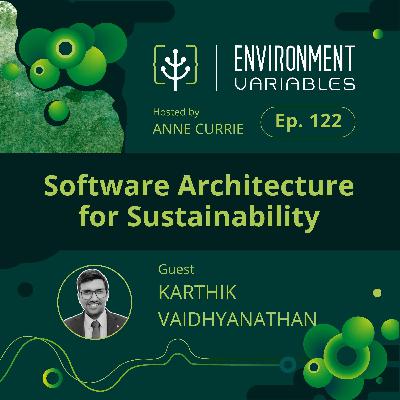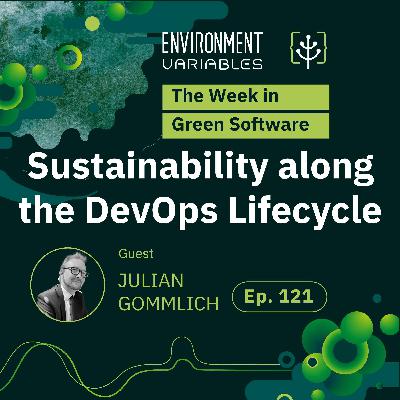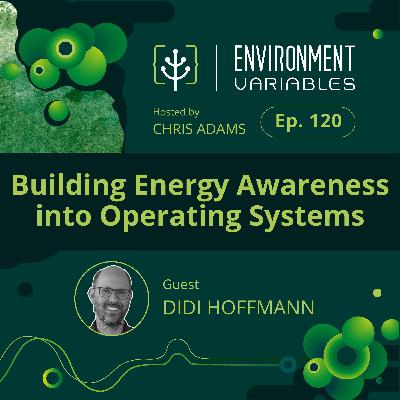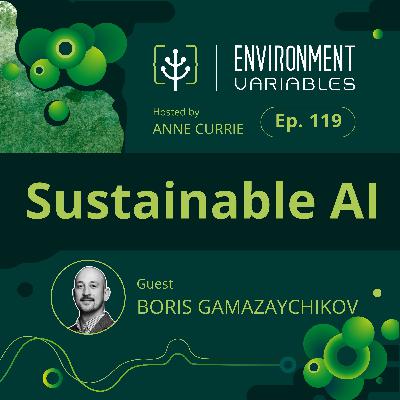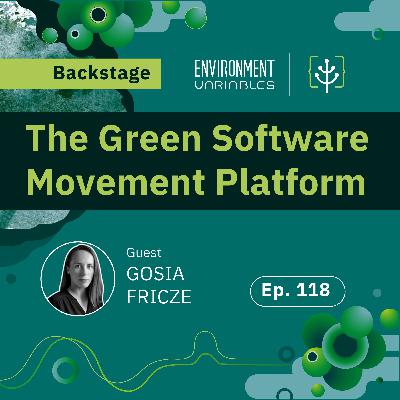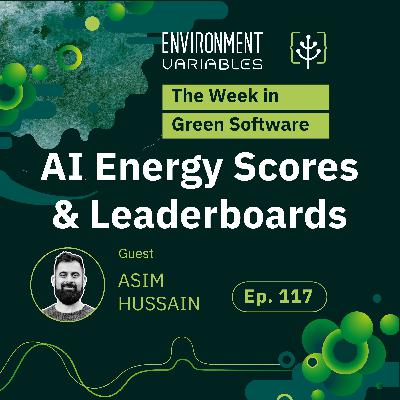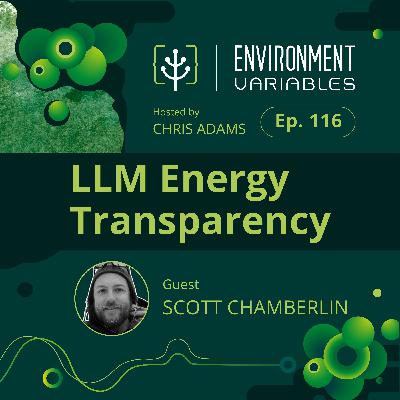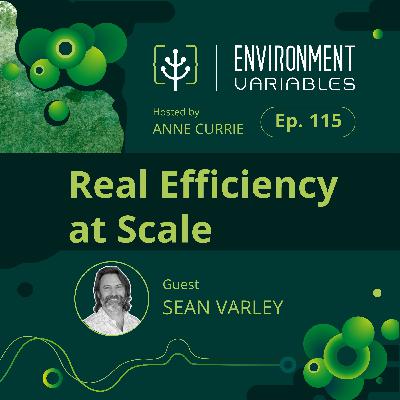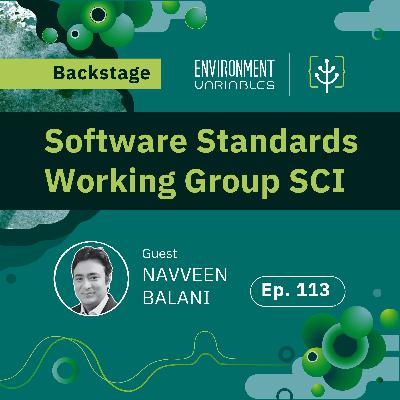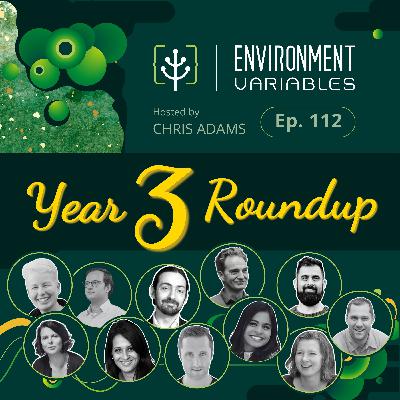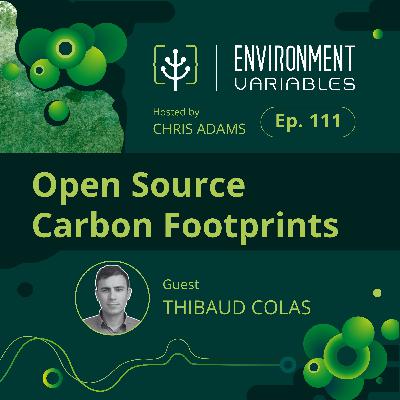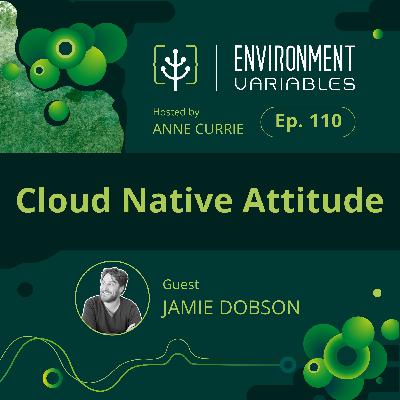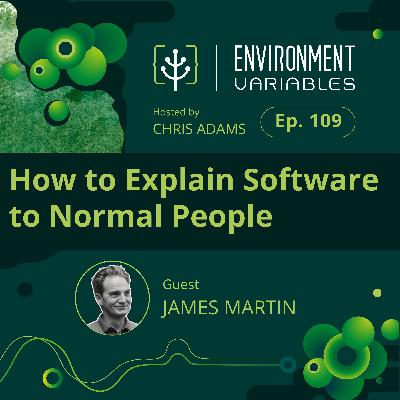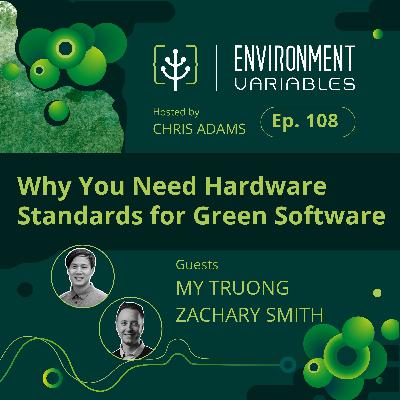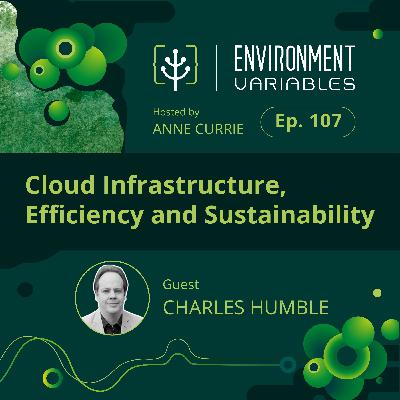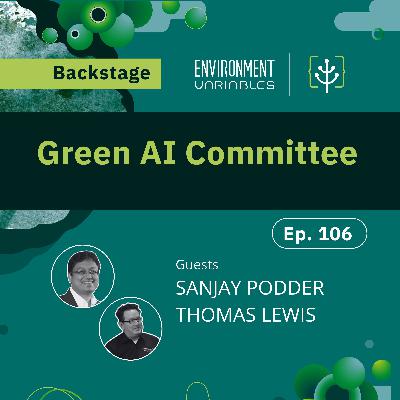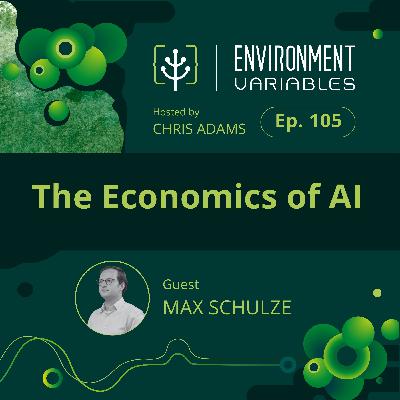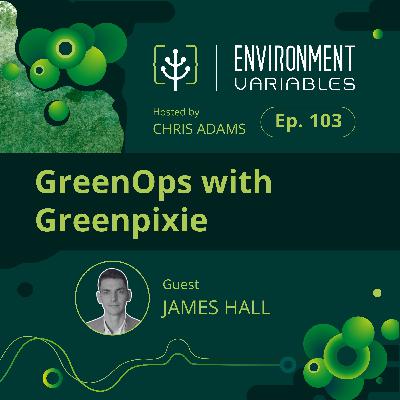Real Time Cloud with Adrian Cockcroft
Update: 2025-07-12
Description
Chris Adams is joined by Adrian Cockcroft, former VP of Cloud Architecture Strategy at AWS, a pioneer of microservices at Netflix, and contributor to the Green Software Foundation’s Real Time Cloud project. They explore the evolution of cloud sustainability—from monoliths to microservices to serverless—and what it really takes to track carbon emissions in real time. Adrian explains why GPUs offer rare transparency in energy data, how the Real Time Cloud dataset works, and what’s holding cloud providers back from full carbon disclosure. Plus, he shares his latest obsession: building a generative AI-powered house automation system using agent swarms.
Learn more about our people:
Find out more about the GSF:
Resources:
- Serverless vs. Microservices vs. Monolith – Adrian's influential blog post [08:08 ]
- Monitorama 2022: Monitoring Carbon – Adrian’s talk at Monitorama Portland [25:08 ]
- Real Time Cloud Project – Green Software Foundation [30:23 ]
- Google Cloud Sustainability Report (2024) – Includes regional carbon data [33:39 ]
- Microsoft Sustainability Report [36:49 ]
- AWS Sustainability Practices & AWS Customer Carbon Footprint Tool [39:59 ]
- Kepler – Kubernetes-based Efficient Power Level Exporter [48:01 ]
- Focus – FinOps Sustainability Working Group [50:10 ]
- Agent Swarm by Reuven Cohen – AI agent-based coding framework [01:05:01 ]
- Claude AI by Anthropic [01:05:32 ]
- GitHub Codespaces [01:11:47 ]
- Soopra AI – Chat with an AI trained on Adrian’s blog [01:17:01 ]
If you enjoyed this episode then please either:
- Follow, rate, and review on Apple Podcasts
- Follow and rate on Spotify
- Watch our videos on The Green Software Foundation YouTube Channel!
- Connect with us on Twitter, Github and LinkedIn!
TRANSCRIPT BELOW:
Adrian Cockcroft: We figured out it wasn't really possible to get real time energy statistics out of cloud providers because the numbers just didn't exist.
It turns out the only place you can get real time numbers is on things that are not virtualized.
Chris Adams: Hello, and welcome to Environment Variables, brought to you by the Green Software Foundation. In each episode, we discuss the latest news and events surrounding green software. On our show, you can expect candid conversations with top experts in their field who have a passion for how to reduce the greenhouse gas emissions of software.
I'm your host, Chris Adams.
Welcome to Environment Variables, where we bring you the latest news and updates from the world of sustainable software development. I'm your host, Chris Adams. If you have worked in cloud computing for any length of time, then even if you do not know the name yet yourself, it's very likely that the way you design systems will have been influenced by my guest today, Adrian Cockcroft.
When at Netflix, Adrian led the move to the cloud there helping, popularize many of the patterns we use when deploying applications ourselves to the cloud. And his name then became synonymous with serverless throughout the 2010s when he joined AWS first leading on open source engagement, and then as a VP focused on what we might refer to now as cloud sustainability.
After leaving AWS, Adrian's kept his fingers in many pies, one of which is the Green Software Foundation's real time cloud project, an initiative to bring transparency and consistency to cloud emissions reporting. With the first dataset release from that project out the door, it seemed a good idea to invite him onto the show to see what's up.
Adrian, thank you so much for joining us today. Can I give you a bit of time to tell us about yourself and what you are, what's what you're keeping? What's keeping you busy these days? I.
Adrian Cockcroft: Yeah, it's great to see you and thanks also for your contributions to the project. We've had a lot of discussions over the last few years as we've worked on that together. well, I'm sort of semi-retired. I stopped my big corporate job at Amazon in 2022. and yeah, I spend my time worrying about my family.
I've got old parents that live in the uk, so I spend a lot of time with them. And, fixing stuff around the house and generally goofing around and doing things I feel like doing rather than stuff that's driven by some corporate agenda. So I'm enjoying that freedom. And, let's see the, yeah, I spend time on the, Green Software Foundation project.
I go to a few conferences and give a few talks and I try to keep up with, you know, what's happening in technology by playing around with whatever the latest tools are and things like that. And that's been my career over the years. I've generally been an early adopter through my entire career. as you mentioned, we were early adopters in cloud.
Back when people said This isn't gonna work and you'll be back in the data center soon. People forgot that was the initial reaction to what we said. it's a little bit like that now with people saying, all this AI stuff doesn't work and we're gonna be giving up and whatever. And it's like, well, I'm making bits of it work well enough to be interesting.
We can talk a bit about that later. and then I know you probably see behind me various musical instruments and things like that, so that's kind of, I, collect musical instruments that I don't have time to really learn how to play and mess around and make bad noises that make me happy. But luckily no one else has to listen to them particularly.
So that's kind of my, that and messing around with cars and things, that's sort of the entertainment for me.
Chris Adams: That sounds like quite a fun, state of stem semi-retirement, I have to say actually. So before we dive into the details of cloud, I have to ask, where are you calling from today Because you have an English accent and like, I have an English accent, but I'm calling from Berlin and I'm guessing you're not in England, so maybe you could do that.
'cause I follow you on social media and I see all these kind of cryptic and interesting posts about cars and stuff and it's usually sunnier than where I am as well. So there's gotta be a story there. What's going on there, Adrian?
Adrian Cockcroft: Well, I lived in England long enough to decide I didn't want to be rained on all the time. which is why I never moved to Seattle when, you know, I didn't move to California to move to America to go live in somewhere with the same weather as England. So that was one reason I never moved to Seattle when I was working for Amazon.
So used to live in the Bay Area in Los Gatos, near Netflix. about five years ago we moved down near Monterey, about an hour or two south of the Bay Area. I. Depending on traffic. we are within earshot of a race track called Laguna Seka that most people know. I can kind of see it outta my window.
I can see a few dots on the horizon on the, you know, moving and that's, there's a few cars you can just about hear them on if they're loud cars. and this is where they have in every August, this thing called Monterey Car Week with the Pebble Beach concourse and historic races. And we used to go to that every year and we like the kind of messing around with cars and going to the track occasionally culture.
So we moved dow
Comments
In Channel

